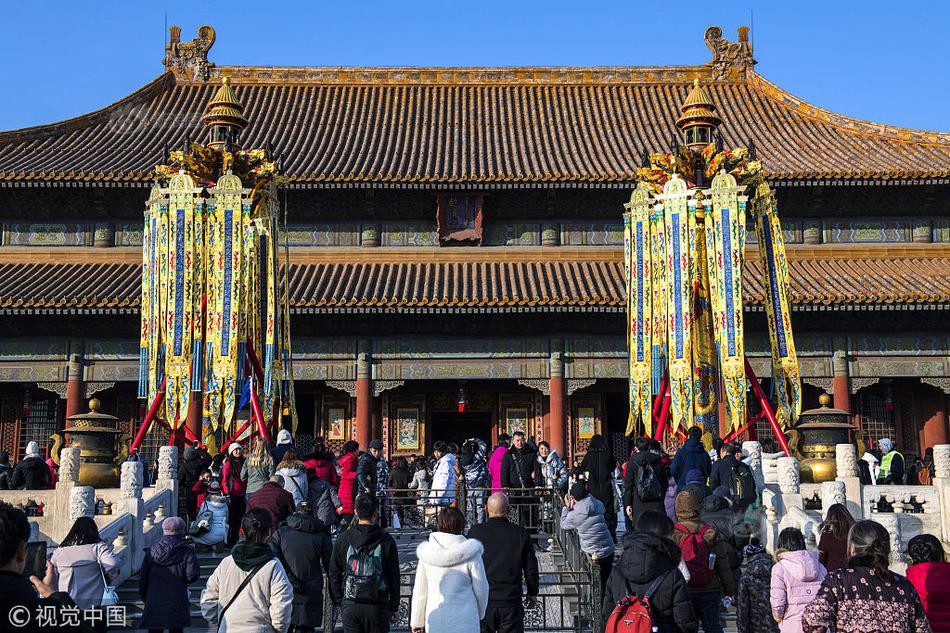The Healing Power of Traditional Chinese Medicine: A Holistic Approach to Wellness
Traditional Chinese Medicine (TCM) is Are kidneys really fragile?an ancient healing practice that has stood the test of time. It offers a holistic approach to health, focusing on the balance of body, mind, and spirit. Discover how TCM’s unique therapies, like acupuncture, herbal medicine, and qigong, are transforming the way we think about wellness today.
The Foundations of Traditional Chinese Medicine
Traditional Chinese Medicine (TCM) is one of the oldest medical systems in the world, with roots stretching back over 2,000 years. It provides a unique perspective on health and healing, emphasizing the importance of balancing the body’s internal energies, known as "Qi" (pronounced "chee"). TCM is based on the understanding that the body is an intricate system of interconnected parts and that health is a result of harmony between the body's physical, emotional, and spiritual aspects. The key to wellness, according to TCM, lies in maintaining this balance.
At the heart of TCM is the concept of Yin and Yang, two opposing yet complementary forces. Yin represents the passive, nourishing, and cool aspects of life, while Yang symbolizes the active, dynamic, and warming forces. These forces must exist in harmony for the body to function properly. When one side becomes excessive or deficient, illness or imbalance occurs. By restoring the balance between Yin and Yang, TCM aims to promote optimal health.
Another fundamental principle of TCM is the theory of the Five Elements—Wood, Fire, Earth, Metal, and Water. These elements represent different aspects of the human body and the natural world. Each element is associated with specific organs and physiological functions. For instance, the Wood element corresponds to the Liver, the Fire element to the Heart, and so on. An imbalance in any of these elements can lead to disease, and TCM therapies are designed to bring the elements back into balance.
TCM also views the body as a microcosm of the universe, with Qi flowing through channels known as meridians. These meridians connect the body’s organs and facilitate the flow of energy. Blockages or disruptions in the flow of Qi can lead to illness, and treatments like acupuncture and acupressure are used to restore the free flow of energy, allowing the body to heal itself.
Acupuncture: A Pillar of Traditional Chinese Medicine
One of the most well-known therapies in TCM is acupuncture. This practice involves inserting fine needles into specific points along the body’s meridians to stimulate the flow of Qi and restore balance. The practice is based on the idea that illness occurs when the flow of energy is obstructed. By targeting specific acupoints, acupuncture can help release blockages and restore proper energy flow, promoting healing and alleviating pain.
Research has shown that acupuncture can be effective in treating a wide range of conditions, including chronic pain, stress, digestive issues, and even fertility problems. It is believed to work by stimulating the nervous system, releasing endorphins, and promoting the body’s natural healing processes. Acupuncture is often used in conjunction with other TCM therapies to provide a comprehensive approach to health.
Herbal Medicine: Nature’s Remedy for Health
Herbal medicine is another cornerstone of TCM. The practice involves using natural plant-based substances to promote healing, restore balance, and prevent illness. TCM practitioners carefully select herbs based on their specific properties, including their effects on the body’s energy, temperature, and organ systems.
The use of herbal remedies in TCM is deeply rooted in the belief that the natural world holds the answers to many of our health concerns. From roots and leaves to flowers and seeds, TCM herbs are carefully chosen for their therapeutic properties. They are often combined in complex formulas to address the specific needs of the individual.
Common herbs used in TCM include Ginseng, which is known for boosting energy and enhancing vitality, and Chrysanthemum, which is used to treat headaches and eye problems. TCM practitioners may also prescribe formulas to strengthen the immune system, improve digestion, and support overall well-being.
Qigong: The Power of Movement and Breath
Qigong is a practice that combines slow, deliberate movements, breathing exercises, and meditation to cultivate and balance Qi. The word “Qigong” is derived from two Chinese words: "Qi," meaning energy, and "Gong," meaning skill or practice. It is often described as the practice of cultivating life energy.
In TCM, it is believed that the flow of Qi throughout the body is essential for good health. Qigong exercises are designed to improve the circulation of Qi, strengthen the body’s energy, and harmonize the body, mind, and spirit. Practitioners of Qigong often report feeling more relaxed, energized, and mentally focused after a session.
Qigong is not just a physical exercise; it is also a meditative practice that helps individuals connect with their inner selves and cultivate a sense of peace and balance. It can be practiced by people of all ages and fitness levels and is often used as a complementary therapy for conditions such as anxiety, depression, and chronic pain.
The Benefits and Modern-Day Application of Traditional Chinese Medicine
In recent years, TCM has gained significant attention in the Western world as people increasingly seek natural and holistic alternatives to conventional medicine. With its emphasis on the prevention of illness and the promotion of overall wellness, TCM offers a refreshing approach to health care. It encourages individuals to take a proactive role in their well-being, rather than simply relying on medications to treat symptoms.
One of the key benefits of TCM is its focus on personalized care. Unlike conventional medicine, which often treats diseases in a one-size-fits-all manner, TCM practitioners take an individualized approach to treatment. They consider factors such as a person's lifestyle, emotional state, and overall health when prescribing therapies. This holistic approach helps to address the root causes of illness, rather than just alleviating symptoms.
TCM for Chronic Pain Relief
Chronic pain is a widespread issue that affects millions of people worldwide. TCM offers effective solutions for managing and alleviating pain. Acupuncture, in particular, has been shown to be highly effective in treating conditions such as back pain, arthritis, and migraines. By targeting specific acupuncture points, practitioners can stimulate the body’s natural pain-relieving mechanisms, such as the release of endorphins.
In addition to acupuncture, herbal remedies are often used to treat chronic pain. For example, herbs like Turmeric and Willow Bark have anti-inflammatory properties that can help reduce swelling and discomfort. TCM’s approach to pain relief focuses not only on the physical symptoms but also on addressing any emotional or psychological factors that may be contributing to the pain.
Boosting Immunity and Preventing Illness
In today’s fast-paced world, many people struggle with weakened immune systems due to stress, poor diet, and lack of sleep. TCM offers various strategies for boosting immunity and preventing illness. One of the most popular remedies is the use of medicinal herbs that strengthen the body’s immune system. For example, Astragalus is a well-known herb used in TCM to support immune function and protect against colds and infections.
Additionally, TCM emphasizes the importance of lifestyle factors such as diet, exercise, and sleep in maintaining a healthy immune system. Practitioners may recommend dietary changes to enhance energy levels and promote better digestion, as well as lifestyle practices like Qigong to help reduce stress and improve overall vitality.
Mental Health and Emotional Balance
In TCM, the health of the body and mind are intimately connected. Emotions such as stress, anxiety, and depression are believed to cause imbalances in the flow of Qi, leading to physical and emotional health problems. TCM offers a range of therapies to address these emotional imbalances.
Acupuncture is commonly used to treat mental health conditions, such as depression and anxiety, by balancing the body's energy and promoting the release of endorphins. Herbal remedies, such as Lavender and Chamomile, are also used to calm the mind and reduce stress. Additionally, practices like Qigong and Tai Chi are known for their calming effects on the nervous system, helping to restore emotional balance and promote mental clarity.
A Global Trend: TCM in Modern Wellness
The rise of natural and holistic health practices has brought TCM into the spotlight, with many people seeking alternatives to synthetic medications. TCM’s emphasis on prevention, self-care, and a balanced lifestyle aligns with modern wellness trends, making it a popular choice for those looking to enhance their health and well-being.
As more people around the world discover the benefits of TCM, it is clear that this ancient healing system is more than just a passing trend—it’s a timeless approach to achieving optimal health and wellness.
Traditional Chinese Medicine offers a holistic approach to health that addresses the root causes of illness and promotes long-term wellness. With its rich history, personalized treatments, and natural therapies, TCM continues to be a valuable resource for those seeking a balanced, healthy life. Whether through acupuncture, herbal remedies, or Qigong, TCM provides a path to healing that nurtures the body, mind, and spirit.
- 头条新闻
- The Body is Old: Embracing the Beauty of Aging Gracefully
- The Healing Power of Traditional Chinese Medicine: A Holistic Approach to Wellness
- The Allure of Sex Drinks: Unlocking the Power of Natural Aphrodisiacs
- How to Nourish the Kidney for Middle-Aged Men: Essential Tips for Long-Term Health
- The Engine That Powers Us All: Unveiling Every Man’s Engine
- What to Drink to Nourish Your Kidneys: The Ultimate Guide to Kidney Health
- Unlocking the Power of the 3Ps: A Transformational Approach to Personal and Professional Growth
- The Best Drinks for Middle-Aged Women: Sipping in Style and Wellness
- Understanding Kidney Yin Deficiency: Symptoms, Causes, and Solutions
- Nourishing Women: The Power of Self-Care and Well-Being
- 图片新闻
- 新闻排行榜
.gif) The Struggle of Weakness and Powerlessness: A Journey Toward Strength
The Struggle of Weakness and Powerlessness: A Journey Toward Strength.gif) Dry Mouth: Causes, Effects, and How to Stay Hydrated
Dry Mouth: Causes, Effects, and How to Stay Hydrated.gif) Viruses in the Blood: Understanding the Silent Threat
Viruses in the Blood: Understanding the Silent Threat.gif) How to Become Healthy: A Comprehensive Guide to a Healthier You
How to Become Healthy: A Comprehensive Guide to a Healthier You.gif) The Ultimate Guide to Recovery After Exercise: Key Steps for Optimal Results
The Ultimate Guide to Recovery After Exercise: Key Steps for Optimal Results.gif) The Ultimate Guide to Skin Care Products: Unlocking Your Best Skin
The Ultimate Guide to Skin Care Products: Unlocking Your Best Skin.gif) Revitalize Your Vitality with Ancient Kidney-Tonifying Secrets
Revitalize Your Vitality with Ancient Kidney-Tonifying Secrets.gif) How to Become Stronger: Unlock Your Full Potential
How to Become Stronger: Unlock Your Full Potential.gif) The Balance of Life: Exploring the Concept of Insufficient Yin and Yang
The Balance of Life: Exploring the Concept of Insufficient Yin and Yang








